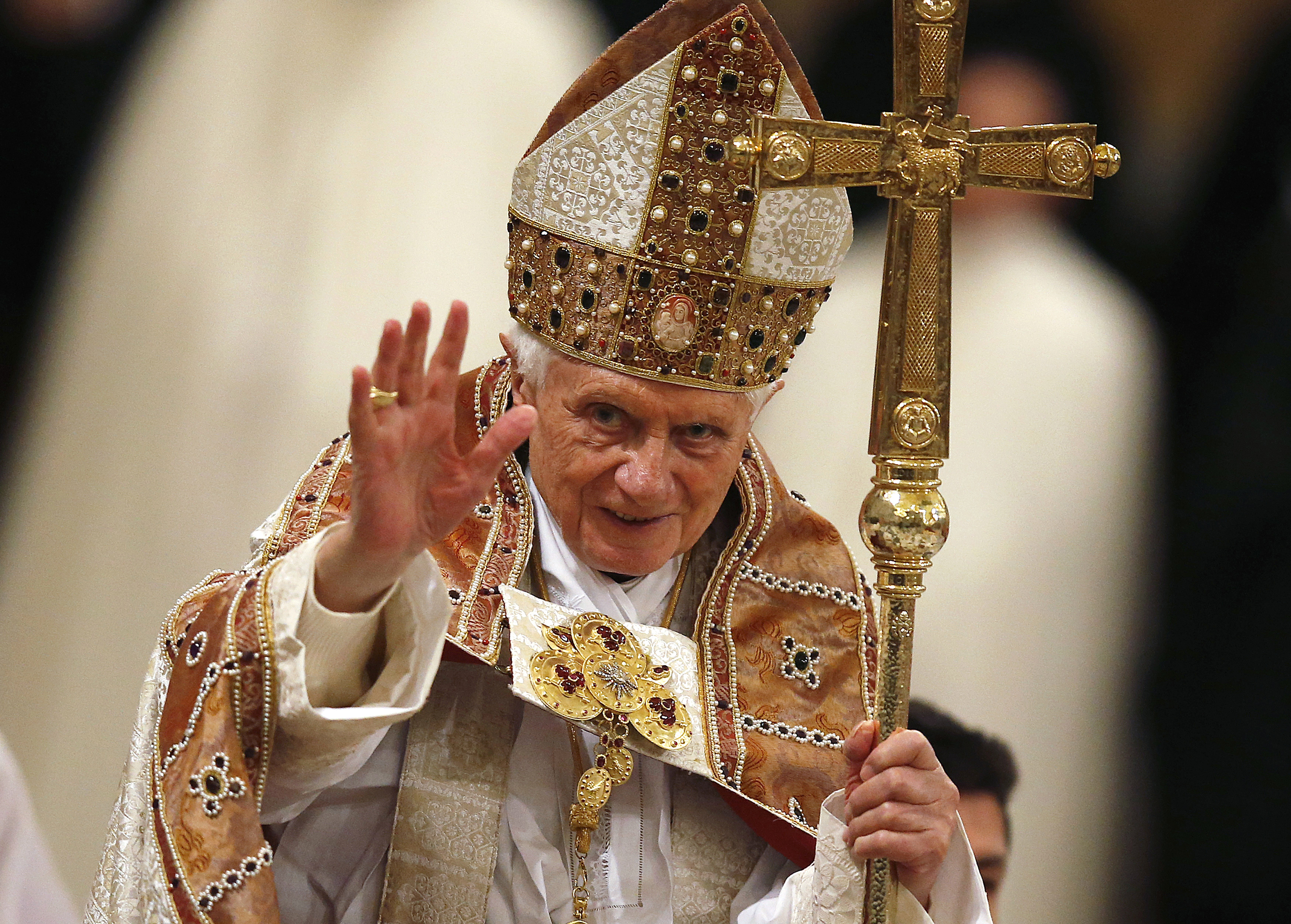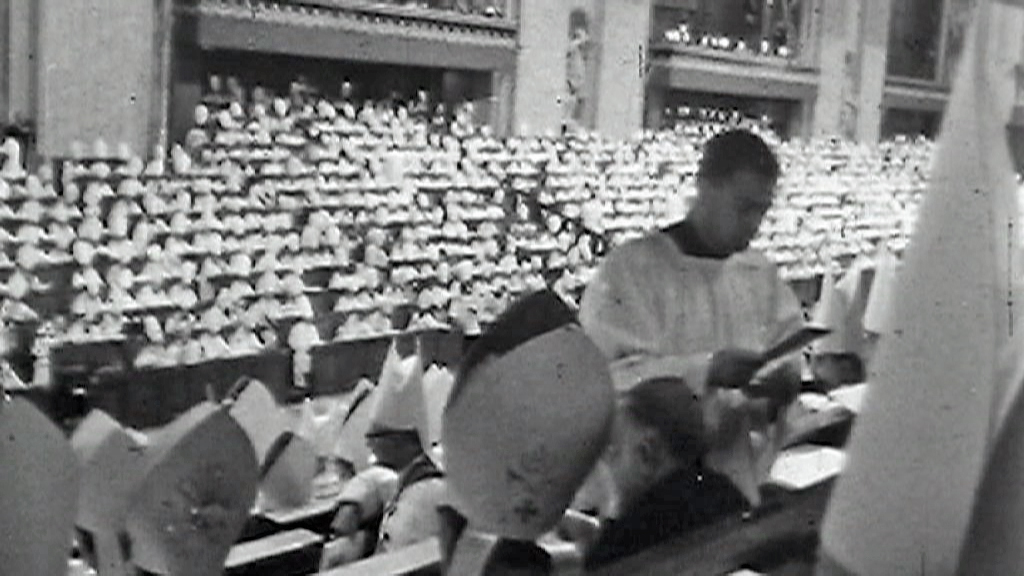Pope’s move catches Swiss Catholics unawares

Like the rest of the world, Switzerland’s Catholics were surprised when Pope Benedict XVI announced his resignation Monday. The Swiss Bishops’ Conference expressed understanding for the decision amid “trying times” for the pontificate.
Bishops’ Conference spokesperson Simon Spengler told swissinfo.ch that the challenges of managing the modern church’s affairs have grown increasingly demanding, both physically and psychologically, in an age of deepening global crises, constant communication and shifting values.
“To hold everything together and try to do a good job is incredibly demanding,” Spengler said. “It’s not just that [Benedict XVI] can’t travel any more or get around physically, I think the problems lie deeper.”
Under Pope Benedict XVI, the Catholic Church saw scandal and religious divisions ranging from far-reaching accounts of sex abuse at the hands of priests to controversial papal remarks about the Prophet Muhammad and leaked internal documents known as “Vatileaks”.
Benedict XVI was considered a theological conservative, with uncompromising views on issues like homosexuality and female priests. Born in Germany in 1927, he joined the Hitler Youth and was later conscripted into the Nazi army before deserting. As Cardinal Joseph Ratzinger, he served for 24 years as the head of the Congregation for the Doctrine of the Faith.

More
Seeking change in the Catholic Church
Working for reunification
Jean-Francois Mayer, religious scholar and director of the Swiss website Religioscope, told swissinfo.ch that he expects Pope Benedict XVI’s legacy will be viewed at least partially in terms of his efforts to bring traditionalist factions like the Swiss-based Society of St Pius X back into the fold of the church.
“He attempted to position the legacy of the second Vatican council on a line which could be acceptable to a wide range of Catholics,” said Mayer. “He was one of the key people who tried to find an agreement with (the traditionalist) Archbishop Lefebvre…which Lefebvre refused to sign at the last minute. So he probably would have liked to succeed at this, even if he wouldn’t have succeeded at reuniting all the traditionalists.”
In addition to his popularity among orthodox Catholics for his traditionalist liturgical interpretations, Mayer says that Benedict XVI may also be remembered for his efforts to connect with other religious faiths, most notably the Jewish religion.
“In his seven years as pope, he has visited more synagogues than [his predecessor] John Paul II visited [in 27 years],” noted Mayer.
An unprecedented move
Because a pope’s resignation in this way is unprecedented in the history of the Catholic Church – the last instance occurred in 1415 under very different circumstances – scholars and analysts were left in the dark over who will next occupy the papal seat. And, says Spengler, Benedict XVI’s resignation may have set a precedent for future church leaders.
“This revolutionary act in the history of the Catholic Church, in my opinion, will likely give other decision-makers and church elders in Rome a lot to think about and will allow them to risk daring new steps in the future,” he said, adding that the idea of a retired pope still in the wings while another serves is completely new for the church.
For Mayer, the concept of papal resignation comes down to the role of modern medicine.
“Today, more and more popes have the chance to get older and older due to modern medical care, so what he has done might well set a precedent because he has broken a kind of taboo. If he did it, no other pope will hesitate to do it if similar circumstances arise in the future.”
Roman Catholic: 46.2%
Protestant: 40.7%
None: 7.4%
Muslim: 2.2%
Who’s next?
Because the Vatican has indicated a new pope will likely be named before Easter, the nomination process is taking place amid a whirlwind of speculation as to who will become the next leader of the Catholic church.
Hans Küng, a Swiss theologian and notorious critic of Benedict XVI, said that although he understands the pope’s reasons for stepping down, he hopes the outgoing pope will not have influence on who is chosen next.
Küng added that Benedict XVI had appointed so many conservative cardinals to the highest posts in the church that there were not many who he feels “could help the church out of its multi-layered crisis” as the next occupant of the papal seat.
The Vatican has stated that Benedict XVI will stay in the papal summer residence of Castel Gandolfo while his successor is chosen and that he will not have any influence over the process. Later, Benedict XVI is expected to retire to a cloister in the Vatican.
Keeping the faith
Spengler says the key issues facing Switzerland’s approximately three million Catholics under the next pope’s leadership are the same ones facing all followers of the faith.
“It’s the same issues, finding answers to the challenges of our times without dividing the church,” he says. “Between left and right, those who want reforms and those who don’t, those who want to keep celibacy and those who don’t, that we find the right way with the ultimate goal of helping people. That’s what has to be done, and it’s not easy.”
“The next pope will need the strength to be able to do that, or at least to be able to gather the right people around himself to help him to take on that responsibility.”

In compliance with the JTI standards
More: SWI swissinfo.ch certified by the Journalism Trust Initiative

You can find an overview of ongoing debates with our journalists here. Please join us!
If you want to start a conversation about a topic raised in this article or want to report factual errors, email us at english@swissinfo.ch.